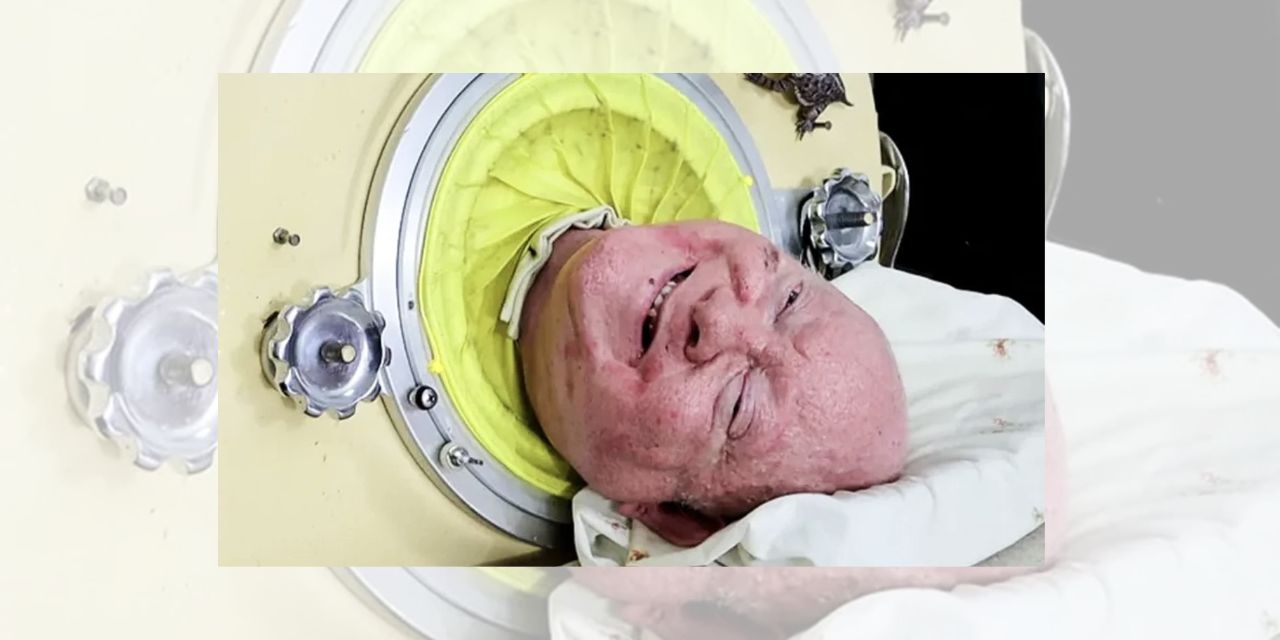Paul Richard Alexander, a polio survivor in childhood and the last man to live for the majority of his life in an iron lung, has died. He was 78.
Iron lungs, or tank respirators, date to 1927. Harvard University’s Philip Drinker and Louis Agassiz invented the machine to help people with compromised respiration breathe. The original versions were run by an electric motor and two vacuum cleaners.
Paul Alexander contracted polio in 1952 at the age of six. In a matter of days, he went from an active and happy boy to fighting for his life. The condition paralyzed his chest muscles, necessitating the iron lung to remain alive. He spent 18 months in the hospital before being discharged on Christmas Eve of 1953.
When doctors discharged the Dallas boy, they told his parents they were taking him home to die.
God and the Alexanders had other plans.
With the help of his family and therapists, Paul was able to work and practice at “glossopharyngeal breathing” – a technique that would allow him to actually spend time outside of the iron lung.
To incentivize the youngster’s progress, a therapist from the March of Dimes promised him a puppy if he could work up to breathing on his own for three minutes. Those three minutes morphed into a few hours per day.
Given his physical limitations, the Alexanders homeschooled Paul for a good portion of his early education. He excelled academically and intellectually. He was salutatorian of his W.W. Samuell High School class, and would have been valedictorian, but limits on his time outside of the iron lung prevented him from doing his biology labs.
When it came to college, Paul was originally told Southern Methodist University in Dallas couldn’t accommodate him with his disability. He pushed back – and they relented. He graduated with an economics degree in 1978. The University of Texas at Austin Law School likewise rebuffed him, once more citing his condition. There, too, he contested the rejection – and graduated in 1984. He’d go on to practice family law and bankruptcy law in the Dallas area.
Members of a Pentecostal congregation, Paul’s parents would bring him to church and pray over him. Their love and devotion made a significant impact on the youngster, especially their lifetime care for him until their deaths.
“I had a whole life lived with them, and it was amazing,” he said. “You know, they talk about God’s love. That’s just words. But when you actually receive it, boy, it’s something. I don’t believe anybody could be like that. I cannot believe that people exist of their quality. They loved me so much. They loved their kids.”
Paul embraced the old adage, “Where there’s a will, there’s a way.” Given that his arms and hands were locked inside the iron lung, he figured out how to write, type, and even paint by putting instruments in his mouth to do what so many of us take for granted.
It took Paul eight years to write a book, Three Minutes for a Dog: My Life in an Iron Lung. But he still wrote it.
“You adapt and learn what you need to do to accomplish your hopes and dreams with the help of the iron lung,” he said.
Of the machine that both kept him alive and imprisoned, he said, “It’s my friend and it’s my enemy.” Paul spoke openly and candidly of the loneliness and isolation. The parents of his fiancé of many years ago forced her to call off the wedding. “Sometimes it’s desperate because I can’t touch someone, my hands don’t move, and no one touches me except in rare occasions, which I cherish.”
“I look at people and I just want to say, ‘Why are you here? What is the purpose? There’s a purpose in your life. What do you do to make things better?’ Because that’s the way I think,” Alexander has said.
Shortly before he died, Paul took to social media to encourage people who were struggling with ailments or other challenges to “hold on because it’ll get better.”
The extraordinary and difficult life of Paul Alexander should serve as an inspiration, challenge, conviction and reminder that we can all develop strength in our struggles. God often gives us far more than we can handle so we’ll reach out for His help and His hands.
May Paul Alexander rest in peace.
Image credit: Paul Alexander’s GoFundMe






